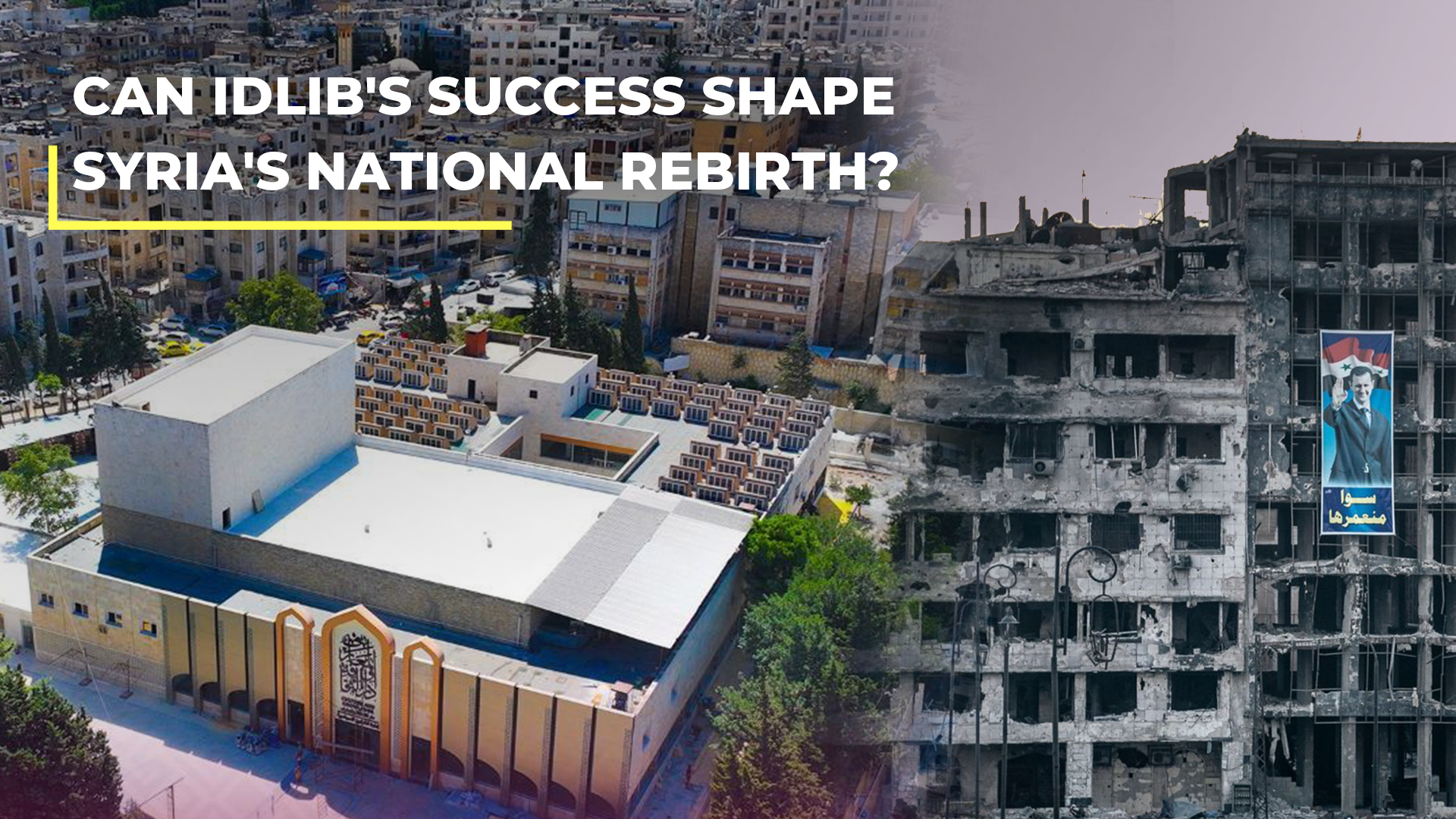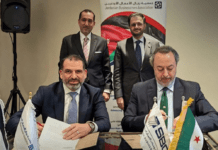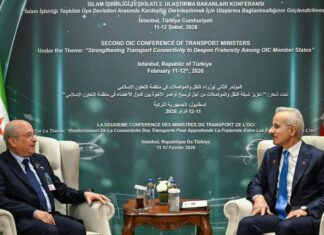
The scent of freshly baked bread wafted through the bustling market as visitors from Damascus, Aleppo City, Homs, and Latakia wandered wide-eyed through the streets of Idlib. In this heart of former Salvation Government rule, the contrasts were startling. Stalls overflowed with goods – meat, yogurt, pickles, and cooking oil – all staples that had become rare luxuries elsewhere.
Clean streets buzzed with orderly traffic, guided by police beneath the glow of electric billboards and functioning streetlights. Gas canisters, diesel, and butane tanks stood ready for purchase without the interminable lines familiar in regime-controlled areas. Bakeries churned out bread without scarcity, and homes and shops enjoyed the luxury of uninterrupted electricity and internet access. Against the backdrop of bombed-out buildings and the challenges of hosting Syria’s largest displaced population, Idlib had defied expectations, blossoming into an improbable oasis of order and prosperity.
The fall of Bashar al-Assad’s regime marked a significant turning point for Syria, as the Command of Military Operations (CMO) forces triumphantly entered Damascus ending over five decades of Assad family dictatorship. Yet as the elation of the regime’s end faded the realization that just as fast as the old regime fell a new government would have to take up the reins of running the state.
Thus, the Syrian Salvation Government (SSG), which had served the liberated areas of northern Syria since 2018 was tasked with bearing the responsibility and forming the Syrian Transitional Government (STG). As the SSG seeks to scale its technocratic governance model nationally, questions about its capacity, challenges, and the role of regional and international stakeholders loom large.
A Model of Technocratic Governance
The SSG has emerged as an unexpected success story amid Syria’s fragmented political landscape. Led by technocrats like Muhammad al-Bashir, the SSG has focused on restoring infrastructure, maintaining public services, and managing the needs of Idlib’s 4.5 million residents. In a region devastated by war, the government oversees, transportation, economic revitalization, agriculture, education, and refurbishing infrastructure and services like water and electricity distribution, sanitation, and road maintenance.
Technocratic systems, like the one implemented by the SSG, rely on expertise and administrative competence, rather than ideological or militaristic leadership, to govern. Under the leadership of Muhammad al-Bashir, a technocrat with a background in electrical engineering and project management, the SSG has prioritized practical solutions to everyday problems, focusing on infrastructure, public services, and economic management. This approach contrasts sharply with the Assad regime’s dynastic dictatorship, which has historically relied on authoritarian control, patronage networks, and the militarization of civil institutions.

In regime-controlled areas, administrative functions are often marred by corruption, inefficiency, and political favoritism. By contrast, the SSG has worked to minimize bureaucratic hurdles, foster accountability, and engage local communities in governance. For example, the SSG’s rapid adaptation to challenges – such as its willingness to amend mistakes and refine policies – has been widely acknowledged as a hallmark of technocratic efficiency. “When they adjusted and fixed something, they were not afraid to admit mistakes,” Salah Ghafir, a former member of the SSG’s Consultative Committee informed L24. This transparency has set the SSG apart in a political landscape dominated by opacity and authoritarianism.
Foreign observers seem to confirm that. “This is an undeniable contribution to Syria,” Nicholas Heras, Senior Director at the New Lines Institution told L24. “The SSG provides an example of technocratic ‘rebel rule’ that focuses on civil administration and infrastructural services.” Heras suggests that the SSG’s model could, in reality, become a blueprint for national governance, provided it incorporates Syria’s diverse communities and prioritizes nonsectarian administration.
The impact of these efforts is visible. Streets in Idlib are clean, traffic lights function and municipal services operate efficiently– amenities often absent in regime-controlled areas. Dr. Hamza Almoraweh, a cardiologist in Idlib, praised the region’s development under SSG leadership, contrasting it with the neglect experienced under Assad.
From a Pond to an Ocean: Upscaling Governance Nationally
Expanding the SSG’s governance model to a national level presents substantial challenges. Syria’s complex social fabric, marked by religious and ethnic diversity, demands a governance model that fosters inclusion and reconciliation.
“The biggest challenge is managing the coexistence of diverse communities and addressing the grievances of those affected by the Assad regime’s oppression,” said Mustafa Manna, a well-known activist and teacher in Idlib. However, Manna emphasized the SSG’s progress in fostering tolerance, citing improved relations with Christian and Druze communities in liberated areas.

Economic obstacles are another pressing concern. The SSG relies on taxes and administrative fees on businesses, farmers, and Turkish border crossings, as well as what little international support enters the area and by cooperating with humanitarian organizations. Scaling this revenue model nationally would require substantial foreign investment and international cooperation. Heras noted, “Syria will need significant foreign investment for reconstruction, which presents challenges given the distrust of HTS by regional and global actors.”
The legacy of mismanagement under Assad further complicates the STG’s task, as the caretaker government inherited the ruins of decades of corruption, theft, and mismanagement. Ghafir highlighted the regime’s systemic corruption and inefficiency, which have left a daunting reconstruction challenge. “Queues for bread, no electricity, no water – this is the legacy the SSG is trying to fix,” he said.
Overcoming Skepticism and Building Partnerships
Despite its achievements, the new STG faces significant skepticism, particularly due to its association with HTS. To address concerns of authoritarianism and sectarianism, experts recommend the STG adopt inclusive governance practices and transparency.
“HTS needs to demonstrate that this is the beginning of a process that will involve all of Syrian society,” Robin Yassin-Kassab, co-author of Burning Country: Syrians in Revolution and in War told Al Jazeera. Proposing a roadmap for political reform, including adherence to UN Security Council Resolution 2254, could reassure both Syrians and the international community.
Partnerships with regional and international stakeholders are critical for the STG’s success. These alliances could help secure much-needed reconstruction funds and ease sanctions in exchange for demonstrated political reforms. Father Fadi Azar, of the Sacred Heart of Jesus Parish in Latakia spoke with L24, emphasizing the importance of trust and inclusion, noting that HTS has improved its treatment of minorities, restoring confiscated properties and encouraging displaced Christians to return.
However, the path forward requires careful navigation of internal and external tensions. “The SSG’s ability to lead a national reconciliation process will be crucial,” Heras remarked. “This includes accountability for war crimes and fostering dialogue between diverse factions.”
Balancing Governance and Legitimacy
As the STG positions itself for national leadership, its focus on governance efficiency must be balanced with efforts to gain legitimacy. Analysts like Thomas Pierret of the Institute for Research and Study of the Arab and Muslim World warn that extending the term of the caretaker government beyond its three-month mandate could erode trust. Transparency in governance and a commitment to shared power are key to avoiding perceptions of a power grab by HTS.

An Ever Adapting Administration
The Syrian Transitional Government represents a potential turning point for Syria, offering a model of technocratic governance that could unify the nation. Its ability to scale this model hinges on fostering inclusivity, overcoming economic hurdles, and building trust with both Syrians and the international community.
As Syrians grapple with the legacy of war, the STG’s governance experience, gained in the Idlib enclave, provides a glimpse of a future beyond the Assad regime– one where reconciliation, accountability, and development take precedence. Whether this vision can be realized depends on the STG’s capacity to adapt, reform, and lead Syria through its most challenging transition yet.








